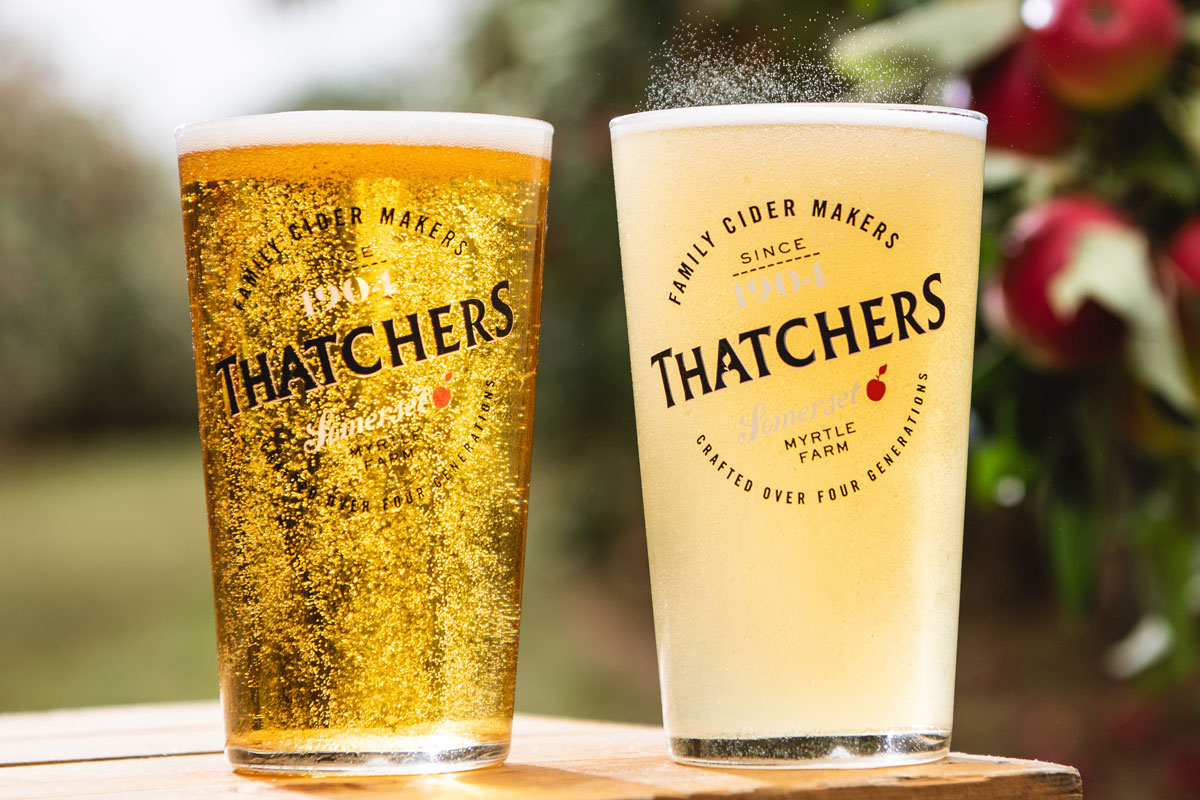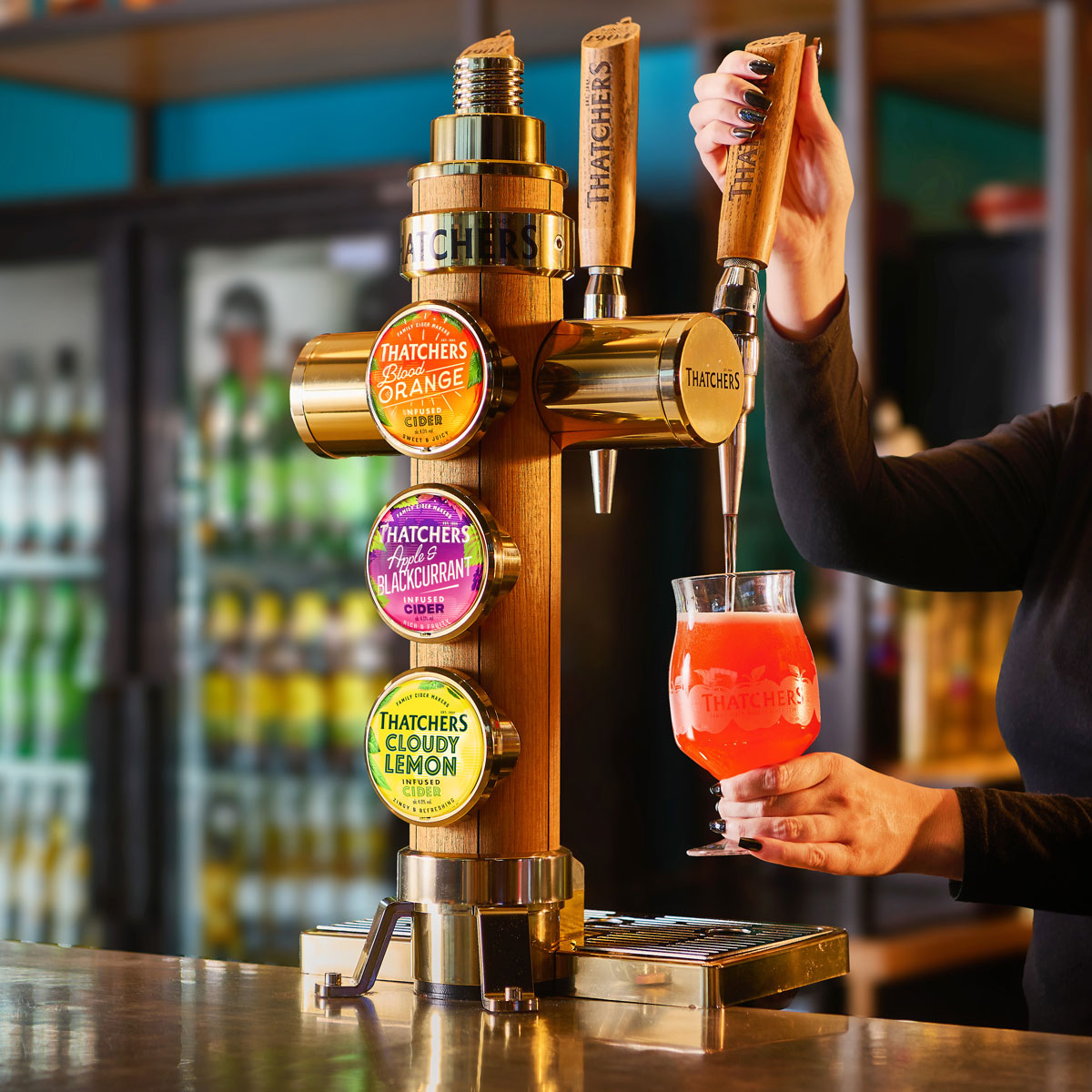
60 Years of SLTN: Family-owned Somerset firm celebrates its 120th anniversary
By Dave Hunter
The SLTN team is – quite rightly, we feel – proud of the title’s 60-year history.
Keeping any concern going for six decades – with all the economic ups and downs along the way – is quite a feat.
So when Thatchers cider celebrates its 120th anniversary this year, readers should take a moment to consider just how impressive that actually is.
The company – founded in 1904 by William Thatcher – remains family-owned in 2024, with the fourth and fifth generations of the family now at the helm of the business.
Needless to say, the company has witnessed a lot of changes in the on-trade cider market during its lifetime, and in the last 60 years in particular, from the traditional barrels giving way to kegs to over-ice serves and then the explosion in fruit flavours.
Innovation, particularly in more recent years, has been a major factor in cider, and Thatchers has prided itself on its new product development.
Now employing 250 people in Somerset, the company produces a range of ciders that includes Thatchers Gold; Thatchers Haze; Thatchers Blood Orange; and alcohol-free cider, Thatchers Zero.
And the company claims that its Fusion font – which allows three fruit-infused ciders to be dispensed from one tap – is a world first in the beer and cider industry.

In Scotland, Thatchers has been steadily growing its presence in recent years and is now pouring from more than 500 taps across the country, with significant growth in both volume and value sales.
However, despite cider’s undoubted value to the trade, Thatchers’ head of on-trade, James Palmer, said not every operator offers the kind of range you would see with other drinks categories.
“Cider is equally complex as the rest of the Long Alcoholic Drink (LAD) category, and brands clearly sit in different segments; mainstream, premium mainstream and premium plus,” said James.
“To be sure you are maximising your customer offer and potential value, you should ensure your bar is reflective of the premiumisation trend and offers the drinks your customers want to see.
“We’d recommend Thatchers Gold on tap as the brand customers want to see, with fruit options like Thatchers Blood Orange and Thatchers Apple and Blackcurrant on the bar or in the fridge, alongside Thatchers Zero for those looking to moderate.”
And, as with other drinks categories, the way a cider selection is priced is important to getting the most out of the range.
James said operators are ‘missing a trick by undervaluing cider’.
“Often it can end up being the cheapest product on the bar,” he said.
“To maximise value, you should think about your cider pricing structure the same way you do lager and reflect the premium nature of the product.
“As people chose to have fewer but better, they are willing to pay for quality.”
Stocking a wider range of products has another major advantage: it increases the visibility of the category in an outlet.
“Cider is becoming an increasingly important category in Scottish pubs and bars – and its success can come down to visibility,” said James.
“If you only have one tap of cider, make sure it’s a brand people want to see. 75% of all draught cider sales are apple, with Thatchers Gold being the perfect crowd pleaser.”
It can be an investment worth making, with James reporting that draught premium mainstream fruit cider has grown 380% compared to pre-Covid, with citrus and berry flavours also proving particularly popular.
The other difference since the pandemic has been greater importance placed on quality, said James.
“The cost-of-living crisis has seen a change in on-trade drinking behaviour, with consumers selecting premium brands over quantity.
“Research shows that 46% of people would choose to have two premium drinks on a night out compared to just 5% who would have five, lower quality or entry level drinks. That’s led to premium mainstream ciders, such as Thatchers Gold and Haze, really hitting the spot for customers.”




















